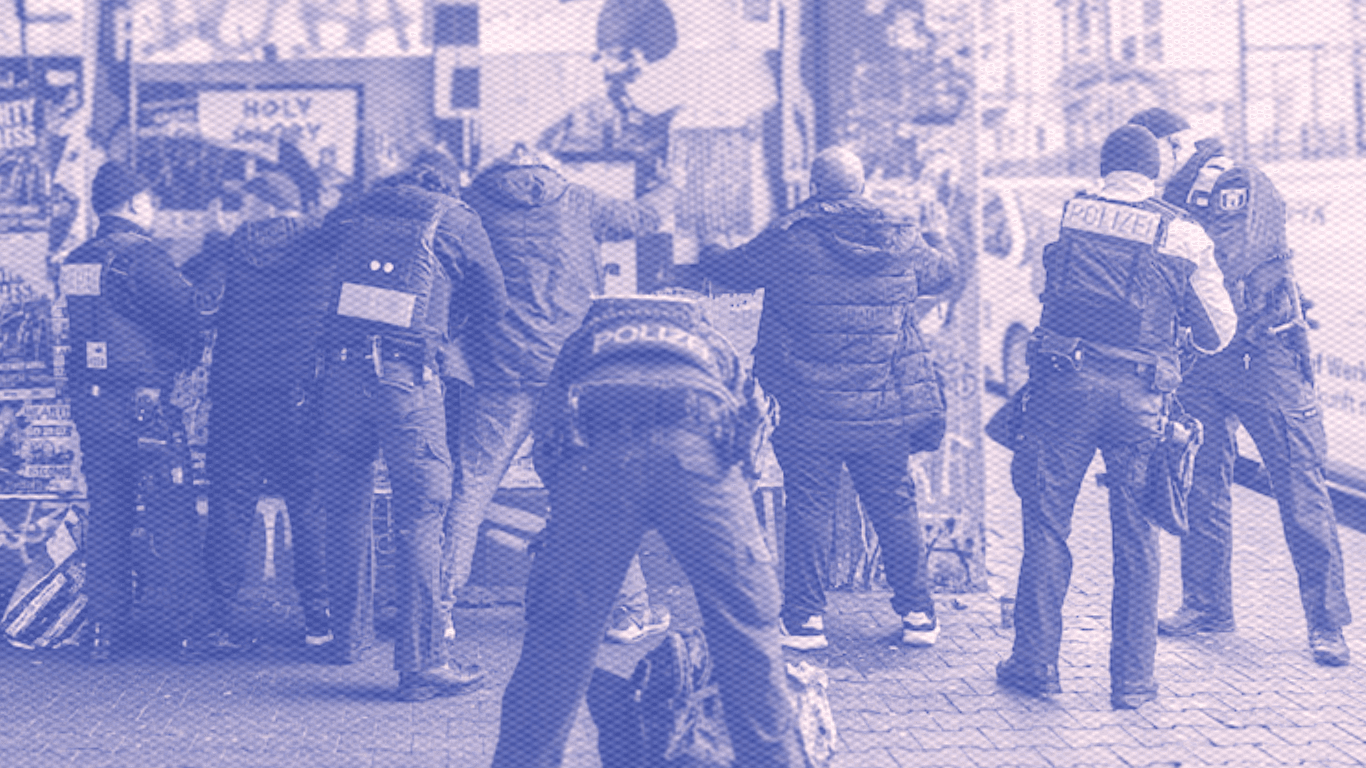Case 28
| Case Number | 28 |
| Charge | Theft |
| Defense Attorney Present | No |
| Interpreter Present | Yes |
| Racialized Person | Yes |
| Outcome | Probation |
A woman is sentenced to probation by summary proceeding, which a court-appointed attorney appealed. At trial, her lawyer is not present and she has to navigate her case without proper interpretation. The judge urges her to revoke the appeal, arguing that she has already received a lenient punishment for possession of a weapon banned in Germany. She judges her harshly based on her association with “the wrong crowd” and urges her to set a better example for her child.
This case shows how procedural injustices in the legal system combine with a moral panic over knives to further marginalize migrants. Weapon bans lead to harsher penalties for migrants who may not be aware of the regulations and because they are more likely to be policed. In this case, we also see just how harsh sentences are in what are essentially simple theft cases when the accused are in possession of a knife. In court, the defendant did not receive legal representation or interpretation. She was unable to respond to the judge’s focus on her social circle and moral character, grounded in little more than general suspicion of migrants and the knife crime panic. In the end, the defendant is pressured into accepting her sentence – and the possible migration consequences she might face following a criminal conviction.
The defendant arrives early and seems unsure about what she is supposed to do. The interpreter does not acknowledge her at first and only begins interpreting when prompted by the judge; the interpreter also does not speak the defendant’s native language. The defendant lives in a refugee accommodation with her child and is taking German courses. The judge therefore tells her to speak without the interpreter, which she struggles to do. Instead of interpreting the whole conversation, the interpreter only translates some of what is said.
The defendant is accused of committing theft while carrying a butterfly knife, which is banned in Germany. Her initial summary proceeding order sentenced her to probation, but her court-appointed attorney (who is not present at the trial) appealed. The judge asks the defendant whether she had been in touch with her lawyer, to which she responds that she was not even aware that she had one. The judge does not react to this and instead continues looking at the charges. She says that upon close inspection of the files, it looks to her like the defendant did not act alone. She says there was another woman arrested in the store, who has many priors for theft, and adds “this is not good company”. When the defendant attempts to explain, the judge talks over her, while the interpreter fails to translate either side. Only now does the judge inform the defendant that she may remain silent.
The judge tells her that withdrawing the appeal would be in her best interest since her sentence is already near the minimum. She off-handedly adds “unless the allegations are completely false, which I guess is possible, but then we would also have to hear witnesses, who I did not invite for today.” The defendant does not seem to understand the judge’s explanation and asks her interpreter: “So ýou mean I should just leave here today?” Her interpreter looks visibly annoyed at the defendant’s confusion as well as uncomfortable answering her questions in front of the judge.
After some back and forth with the interpreter, the woman decides to revoke the appeal and accept the previously issued probation sentence. She asks whether probation requires registration or regular check-ins. The judge laughs, dismissing the question. Before concluding, the judge warns her to avoid the “wrong crowd” who will get her in trouble, emphasizing the importance of setting a good example for her child. She reiterates that the defendant should now be aware the knife is banned in Germany and warns that any future offense will result in harsher punishment because she can no longer plead ignorance of the law.
